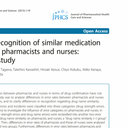Hypoxia enhances beta-amyloid-induced apoptosis in rat cultured hippocampal neurons.
Klíčová slova
Abstraktní
We investigated the effect of hypoxia on beta-amyloid (Abeta)-induced apoptosis in rat cultured hippocampal neurons. Abeta (25 microM for 48 h) decreased the number of neuronal cells and increased the number of TUNEL-positive cells. Hypoxia (6 h) also decreased the number of neuronal cells, but did not increase the number of TUNEL-positive cells. Moreover, combined treatment with both Abeta and hypoxia (Abeta/hypoxia) significantly enhanced the decrease in the number of neuronal cells and the increase in the number of TUNEL-positive cells. Z-Asp-CH(2)-DCB, an inhibitor of interleukin-1beta-converting enzyme (ICE), or 6-cyano-7-nitroquinoxaline-2,3-dione (CNQX), a non-N-methyl-D-aspartate (non-NMDA) receptor antagonist, decreased the number of TUNEL-positive cells with Abeta/hypoxia. These findings suggest that ischemia or hypoxia is an important factor that facilitates the symptoms of Alzheimer's disease and that non-NMDA receptors are involved in the induction of apoptosis in patients suffering from both cerebrovascular disease and Alzheimer's disease.


